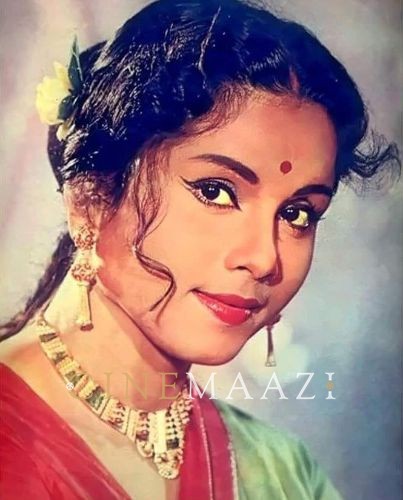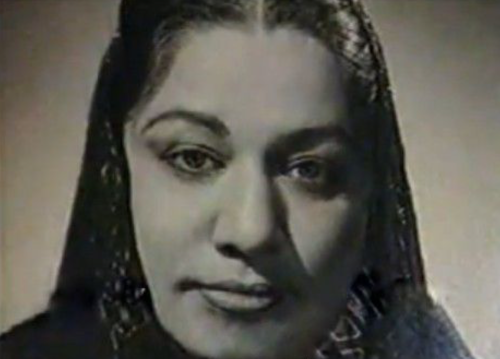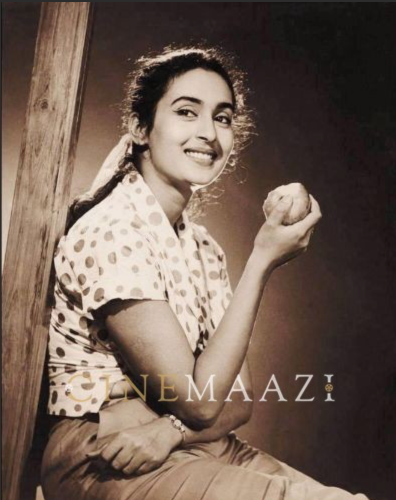Prithviraj in News! India's Glamour Boy Dreams of Hollywood! Hero of India's First Picture in English!
Literature is suffering from a dearth of new situations, and war news has been so sensational that we no longer are surprised to read what they'll do next.
In fact, the average newspaper and magazine reader has become so shock-proof that if you told him Hitler had presented a London hospital with an 'iron lung' (a la Lord Nuffield) he would accept the news with as much unconcern as he would accept a second peg.
But "The Court Dancer" in English at the Metro Cinema is front page news which is guaranteed to shake any reader out of his emotional inertia. Therefore Prithviraj as the hero of the first Indian film to be made in English is going to have more attention focussed on him than is good for a single human being.
No one dreamt - except perhaps Prithviraj - that an Indian film would be made in English, Prithviraj dreamt about it because he is always dreaming, but the nice thing about his dreams is that they gradually assume a more concrete form and become realities.
He used to dream of becoming an actor and he did. He used to dream about making a film in English and he has. He dreams now about going to Hollywood and I believe he will. "The Court Dancer" is the first step towards realising this last ambition. World audiences will now be able to see and understand an Indian film. Europeans in Bombay whose only confact with Indian films so far has been through dust-bespattered posters which they glance at idly, will have a chance to judge the worth of India' actors and actresses.
A GOOD LOOKING GUY!
Prithviraj, both as an actor and a man can face with unconcern the most critical of audiences. Better looking than most Hollywood actors, his face has the sensitivity and intelligence of a true artist, while his physique would do credit to an athlete.
The son of a Sub-Inspector of Police, and the grandson of a Tehsildar, it took all his powers of persuasion together with his failure in his first law examination to convince his father that Prithviraj would not make a good Policeman.
Prithviraj was determined to be an actor. So great was his enthusiasm that his father eventually gave in to him and Prithviraj set out for Bombay. No doubt in his youthful eagerness he had visions of taking Bombay by storm and becoming a star overnight. You will see later that what he achieved was almost as good as his dream.
MECCA OF HIS DREAMS
Bombay to Prithviraj was a Mecca, a place where his dreams would be realised, so when the train bringing him from his birth place Peshawar, drew into Grant Road station, and his fellow passengers said "This is Bombay", he looked at them with suspicion and said in a determined voice "My ticket says 'Colaba' and if I'm to get to Bombay I must get out at Colaba station," So Prithviraj got out at Colaba Station and eventually found his way to the Kashmir Hotel. Here, strangely enough, he met two men connected with the films, Mr. Obeloi and Mr. G. K. Mehta, the well-known cameraman. They showed Prithviraj how to find his way to the Imperial Studios by drawing complicated diagrams for him to follow. Prithviraj had no letters of introduction, and no idea how he should go about this business of becoming and actor but he went to the Imperial Studios.

Ardeshir was impressed by Prithviraj and his excellent College certificate which mentioned his dramatic ability. He said "My boy I see success written on your face but I can only offer you work as an unpaid extra." Prithviraj, picturing the amusement he would see on the faces of his friends in Peshawar if he returned a failure, agreed to become an unpaid extra. So he started work as an extra, but the day following his interview with Ardeshir, he attracted the attention of the director B. P. Misra, who gave him several film tests and then offered him the lead in his new picture.
AN HARD UP ACTOR
Nothing daunted, he joined Grant Anderson's Indian National Theatre Company and toured the country with them for ten months. During this time Prithi acted in fifteen plays among which were plays of Shakespeare, Shaw and Tagore. These Prithi says, were some of the happiest days of his life. He says "Very often we were dressed in magnificent costumes but we had nothing in our pockets. Yes, from a monetary point of view, those were hard times but we did not care. Grant Anderson was a grand old trouper and one day he paid me a very extravagant compliment. He said 'Prithvi, you are the seventh descendant of Shakespeare and with "our interpretation of Shakespeare's Cassius I can put on any London stage'."

Then he made "Seeta" for the East Indian Company and returned in the New Theatres and worked with them for five years. In Calcutta he worked under the direction of the famous Devki Bose and worked in "Vidyapati".
HIS SYMPATHY FOR GREECE
His two new films are Shalimar's "One Night" with Neena and another picture for Taj Mahal Pictures with Naseem.
So you see Prithviraj has had a very interesting and exciting career and his twelve years in the film business have taught him that once you become an actor you are an actor always. He loves his work.
INDIA'S AMBASSADOR
Prithviraj, has achieved the fame he dreamt about as a College boy and he will probably achieve world fame if he goes to Hollywood.

"Through my plays I will let people see what life is like and what it should be like. I do not believe in preaching. My plays I hope will guide the people better than any preaching could. I pray that I may harness my art to the betterment of humanity."
Prithi plays tennis, hockey and football and you may, if you happen to be there at the right time, see him wielding a tennis racquet at the Hindu Gymkhana at Matunga.
He is also learning to play the sitar "so that he can entertain people in Hollywood if he goes there." He reads American film magazines from cover to cover so that the people in Hollywood will not seem like strangers when he meets them.
"THE COURT DANCER"
If "The Court Dancer" is sent abroad for foreign distribution and acclaimed by Hollywood I see no reason why its star Prithviraj should not very soon realise his dream and make films in Hollywood.
Carmen Miranda is known as Brazil's unofficial ambassadress to America.
Prithviraj would make a very distinguished unofficial Indian ambassador to America.
Don't you agree with me?
This is a reproduction of the original published in Film India, 1941.







.jpg)


